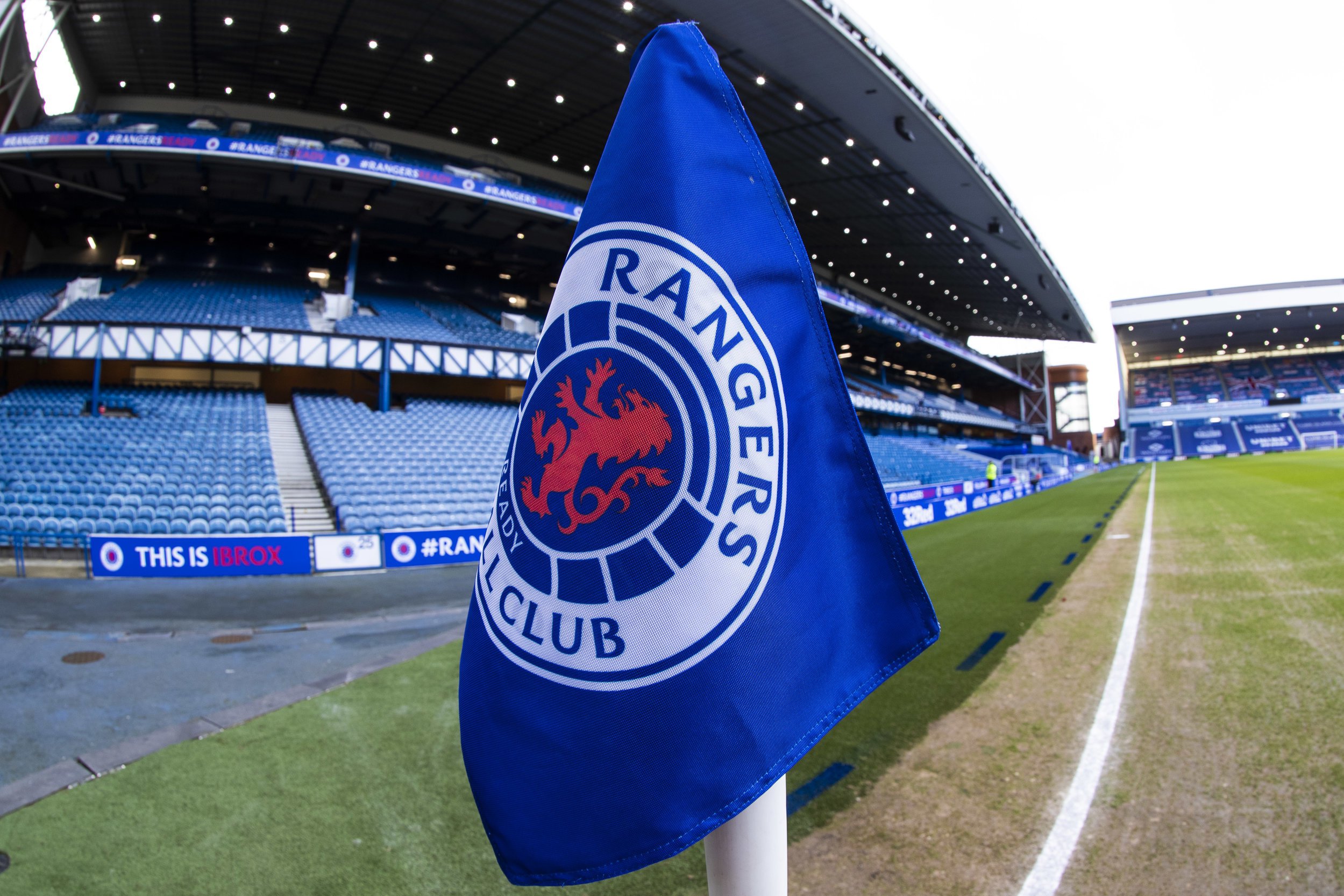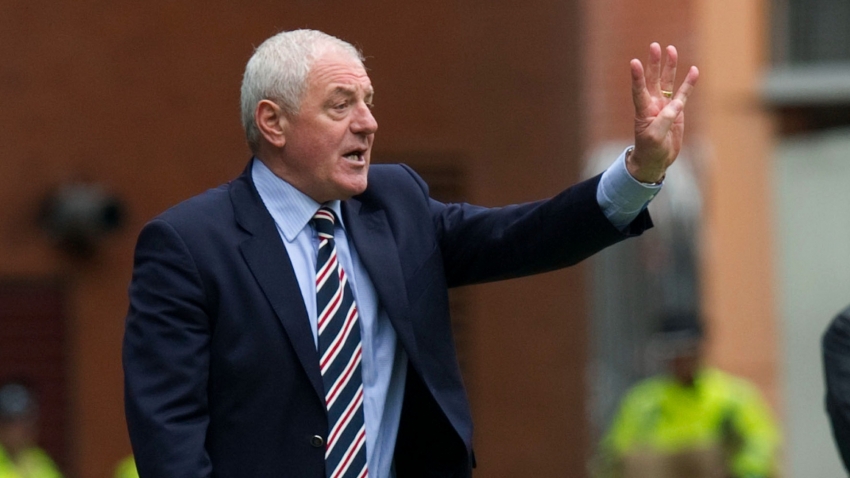
Rangers FC via PA Images A corner flag at Ibrox Stadium, Glasgow.
Rangers board should heed Walter Smith’s advice and IGNORE the fans in hunt for next boss – Keith Jackson

The Rangers board have one question to ask themselves and if they don’t know the answer already, it’s not hard to figure out.
There is a very basic solution to begin unraveling the incomprehensible mess Rangers have created for themselves.
Those in charge of the Ibrox club’s affairs simply need to ask themselves one question whenever they are charged with making decisions that could make the situation much worse than it is. What would Walter Smith have done in this situation? And if they don’t know the solution, they should be able to figure out how the great guy would almost likely not have gone about it.
For starters, Smith may have been a Rangers diehard all of his life but he also held a healthy disregard for the opinions of his fellow supporters. Throughout his trophy-laden two stints in charge he realised while they doted on him one week, they would demand his head on a plate the next. As a result, while caring deeply about them, he learned to cope with their fickleness largely by ignoring them completely.
What Smith would never do is make a choice based on how it would affect his popularity with the fans in the stands. That is why the Rangers’ board should take a page from his book as they debate how and with whom to replace Michael Beale.
When they contacted Frank Lampard last week and scheduled an interview with the former Chelsea and Everton manager in London, they must have believed they were dealing with a highly credible candidate for the role.
Chief executive James Bisgrove was particularly eager to set up a meeting, even going so far as to invite Graeme Souness to come in order to hear what Lampard had to say. Despite this, Rangers dropped the proposal like a hot potato as soon as Record Sport made it public, and fans reacted to the news by going from irate to apoplectic.
By Friday evening it was being leaked out from Ibrox the discussions with Lampard would be taken no further, which seemed like an attempt at nothing more than crowd control. All of which points to a club which is running its managerial recruitment process around what is being posted on online message boards and social media sites.
And, if that’s the case, it’s a pretty astounding state of affairs – even if the supporters probably had a point on this occasion. Lampard may have been a good footballer, and his fame as one of the Premier League’s greats would have made him a marketing dream, which is possibly what drew Bisgrove in the first place. But nothing he’s done since moving from the field to the dugout suggests he’d be capable of getting Rangers out of the ditch Beale left them face down in.
If Smith was still here, he would have told chairman John Bennett that the appointment of an experienced manager – one who has won far more football matches than he has lost – is urgently needed. With that in mind, he would have enthusiastically supported the decision to enlist Souness and tap into the knowledge and expertise of the man who changed the club in the 1980s.
Assuming that Souness pulls rank on Bisgrove, Bennett and director Graeme Park – who appointed Pedro Caixinha the last time he was given the responsibility of heading up a manager hunt – then this selection process might yet reach a satisfactory conclusion. And yet the early indications are that Rangers are not quite sure of what it is that they are actually looking for.
Lampard and Kevin Muscat have already been interviewed but there’s nothing remotely similar about their CVs, style of management or even their philosophies on how the game should be played. Muscat had no real lasting profile from his own playing days, other than a reputation for being one of the most brutal, old school hatchetmen in the business.
But his identity as a manager is in stark contrast to the image he portrayed on the pitch. The Aussie is very much the thinking man’s coach – cultured and contemporary in the way he goes about his work and, ultimately, he has trophies in the bag to prove that it works.
Belgian contender Phillipe Clement also has silverware tucked away in the shape of three Belgian top flight titles but appears to be touting himself for a job in Saudi Arabia on the kind of wages which Rangers would be highly unlikely to match.
Pascal Jansen is building a terrific reputation for himself as a head coach in the Netherlands but his current club, AZ Alkmaar, are notoriously difficult to deal with and would neither welcome nor facilitate any Rangers approach.
And then there’s Oliver Glasner who unexpectedly threw his hat into the ring last week having broken Rangers’ hearts in Seville 18 months ago when leading Eintracht Frankfurt to the Europa League.
Glasner may have had the credentials to make it onto a three man shortlist for the German national job just last month but the Austrian hasn’t received so much as a follow up call from Ibrox since instructing his advisers to make initial contact.
Kilmarnock’s Derek McInnes remains another potential candidate and this one really would have interested Smith, who was always more than happy to act as a mentor and sounding board for his former player.
There are, of course, some Rangers fans who won’t tolerate the idea of offering the job to McInnes following his decision to turn it down during his time in charge at Aberdeen. What would Walter Smith have done?

Well, as a matter of fact, it was Smith who advised McInnes to walk away from the table after Dave King changed the goalposts at the 11th hour, attempted to renegotiate a contract which had already been agreed and refused point blank to discuss the size of budget that would be have been made available. Acting on Smith’s advice, McInnes didn’t turn Rangers down. He said ‘no’ to King and to the prospect of working for a man he felt he could not possibly trust.
On reflection, that seems like a pretty shrewd move on his part but a bad one for a club which has won only two trophies over the subsequent six years. It’s difficult to imagine such a paltry return of silverware had McInnes not been convinced into changing his mind.







